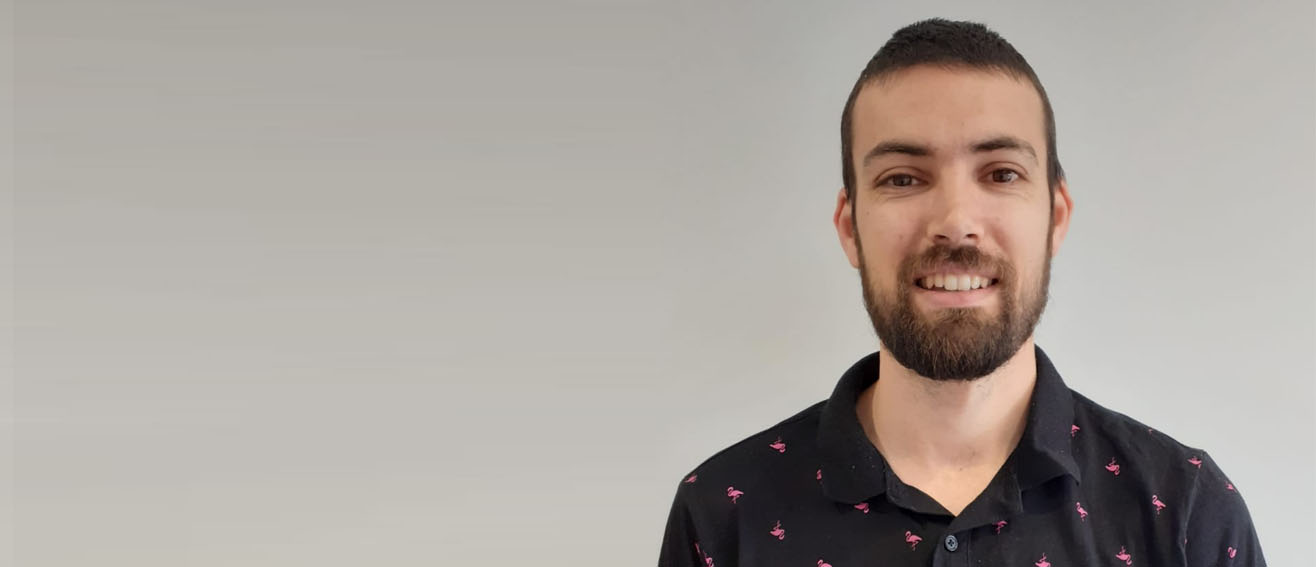
Daniel Rodger, lecturer, BSc Operating Department Practice
Daniel tells us why he chose to lecture at LSBU and gives important advice to anyone considering becoming an operating department practitionerWhat made you want to work at LSBU?
When I was working clinically I was a mentor for a number of student operating department practitioners (ODPs) from LSBU and was always impressed with their level of knowledge and professionalism. So when the opportunity came up to work at LSBU I was really excited to join the team. I hadn’t known at the time, but I later found out that the ODP course at LSBU moved from Guy’s and St Thomas’ NHS Trust in 1994. The first formal training school ever established was at St Thomas’ Hospital in 1947 and so the roots of the ODP course at LSBU run deep.
What does an ODP do?
We are a group of allied health professionals, registered with the Health and Care Professions Council (HCPC), who deliver patient-centred care as part of the multidisciplinary team, predominantly in the operating theatre. ODPs possess specialised skills and knowledge in three related but distinct areas: anaesthetics, surgery and recovery. We work very closely with both anaesthetists, surgeons, nurses and other allied health professionals to offer specialist anaesthetic and surgical assistance in a dynamic and demanding environment. One day you could be assisting a surgeon during cardiac surgery and the next helping to anaesthetise a patient requiring an emergency cesarean section.
Why is it important to celebrate the work ODPs do?
The general public tends to have a very binary view of healthcare professionals; there are doctors and nurses. This is understandable on one level because they are the two largest groups of healthcare professionals. However, this means that some of the smaller healthcare professions can get forgotten about. National ODP day means that we get to celebrate the important role that the ODP profession plays in providing safe, patient focussed care. In fact, 2020 is a particularly important year as it marks the 75th anniversary of the founding of the College of Operating Department Practitioners.
What do you think about the role your profession has played during the coronavirus pandemic?
ODPs are playing a vital role during the Covid-19 pandemic. Many of our former students are working on the frontline caring for patients all across London and the south-east. Some will be working in the operating theatre caring for patients undergoing emergency surgery whilst others are utilising their transferable skills caring for ventilated patients in critical care. I think it's amazing to see our profession step up to the challenge and show other people what we’re capable of. I have never been prouder to be an ODP.
What message would you give to anyone thinking about studying and going into a career in ODP?
If you want to care for patients in a challenging environment where no two days are the same then becoming an ODP will be something you will want to consider. Like all other healthcare courses it is something that will demand a significant proportion of your time and requires a lot of hard work, organisation and dedication. So if you’re considering becoming an ODP I’d recommend attending an open day at LSBU and speaking to a member of the ODP team.
Why should you come to LSBU to study ODP?
LSBU has great facilities in its skills labs, which allows students to get hands-on experience with specialist equipment. We also have up to date simulation equipment that allows students to interact with remotely controlled patient manikins, providing a safe environment to develop core clinical skills. The faculty at LSBU have excellent relationships with leading teaching hospitals across London, providing an unrivalled choice of clinical placement opportunities at a number of nationally and internationally recognised hospitals.